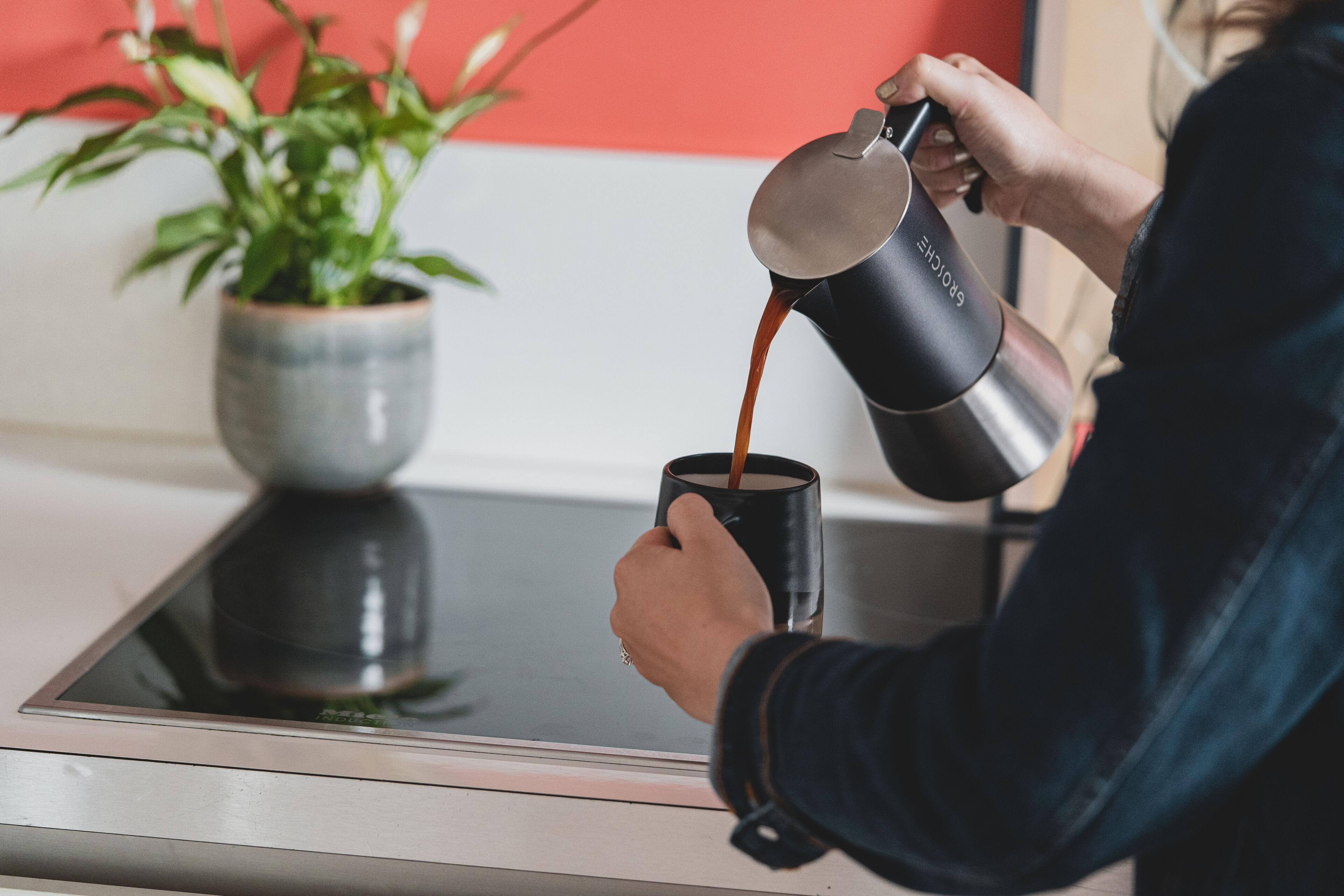
Which drink contains more caffeine: espresso or filter coffee?
To find out, we investigated how caffeine develops in our cups, depending on the extraction method. So, what do you think: espresso or filter?
What is caffeine?
A brief history of caffeine
Caffeine is an alkaloid, an organic substance of plant origin. Discovered in 1819 by the German chemist Friedlieb Ferdinand Runge, caffeine has been found in many exotic plants and substances, including chocolate, tea (known as theine), guarana and, of course, coffee. The same molecule is therefore present in all these products.
What is caffeine used for?
The coffee plant produces caffeine to protect itself from insects as a self-defence system. It's a natural antiseptic created by the coffee plant to protect itself in its external environment.
Gustatively speaking, we know that caffeine has a bitter taste, but it doesn't account for all the bitterness in a cup of coffee. It accounts for around 10% of a cup's bitterness, while the remaining 90% is due to roasting. And that's without mentioning the bitterness associated with preparation!
So, filter or espresso?
The verdict
Simplistically, we estimate that a 240 ml cup of filter coffee contains between 65 and 120 mg of caffeine, while a 30 ml cup of espresso contains between 30 and 50 mg. So it's clear that a filter coffee contains 2 to 3 times more caffeine than an espresso!
But...
However, as is often the case when talking about coffee, this statement lacks precision. This statement needs to be seen in constant perimeter, i.e. in volumetric terms. Especially as the volumes of the various extractions have now changed in line with consumer preferences, and it's not uncommon to see people with coffees that are more or less elongated, whether filter or espresso.
To be more precise, we could summarize it this way: from the perspective of a classic beverage, as an espresso is served in small volumetric quantities, the caffeine concentration will be lowered. But from a volumetric point of view - and this is the big difference - an espresso has much more caffeine than a filter coffee, due to a higher concentration of solubles (TDS or dissolved solids) in a 30 ml cup. In short: more solubles in a cup = more matter = more caffeine!
Did you like this article? Share it with your community:
